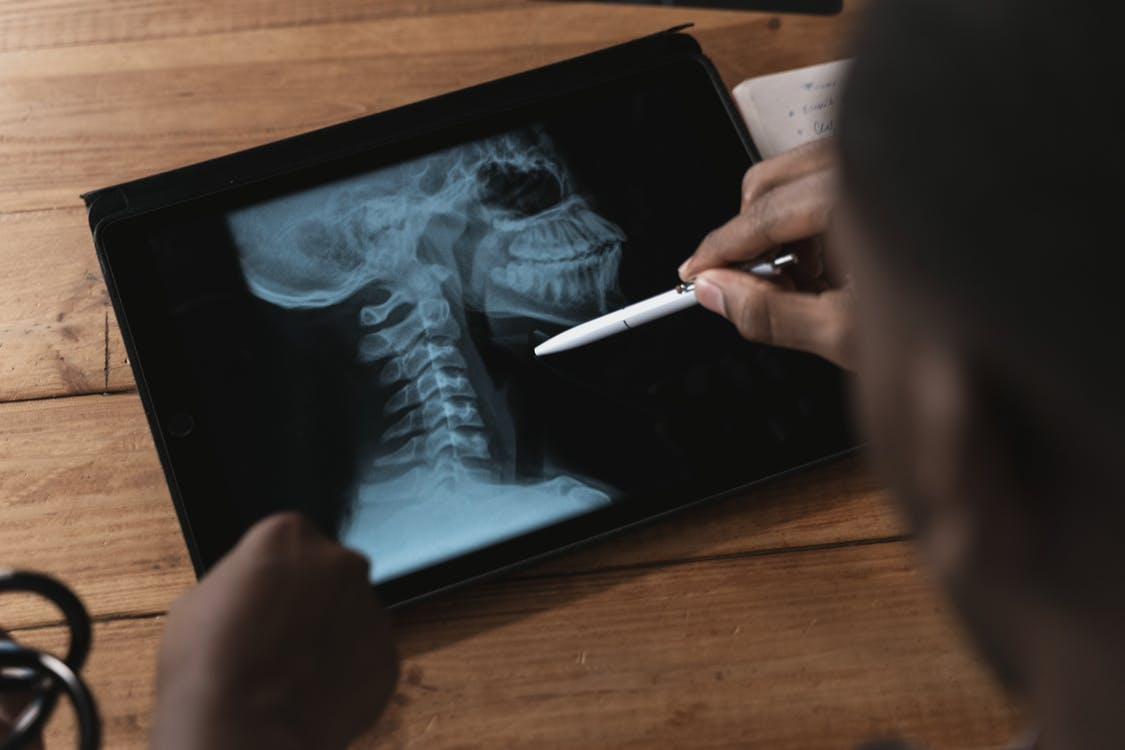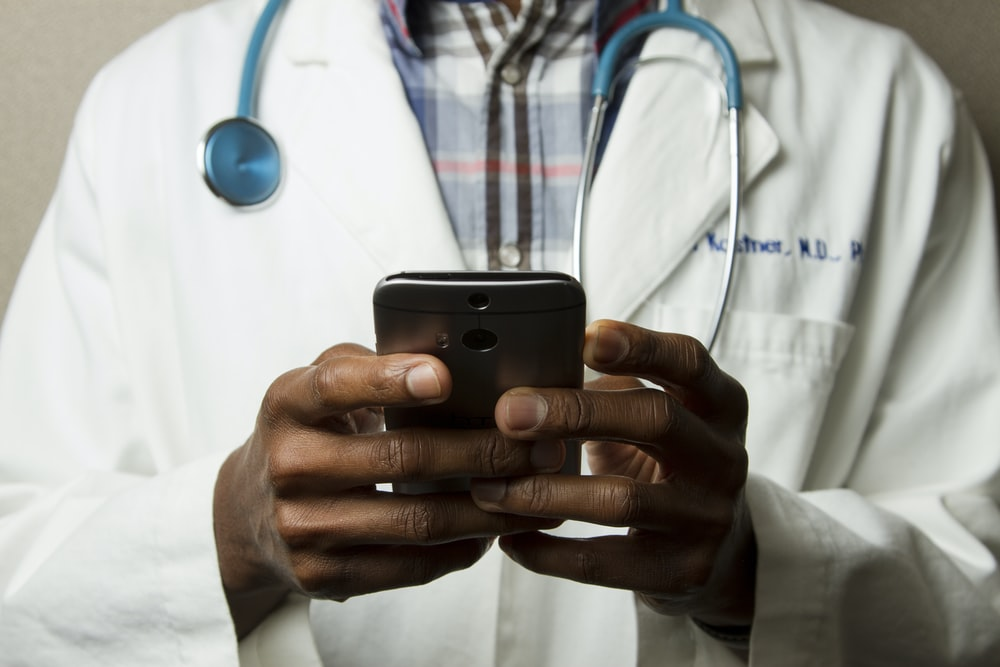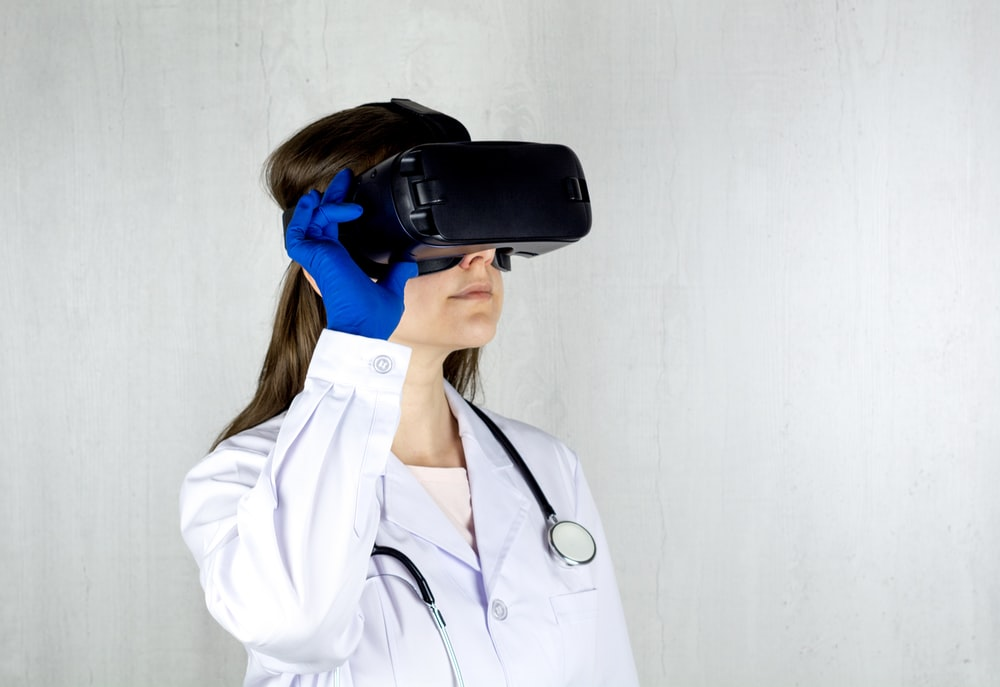6 Technology Trends in Healthcare Industry

The healthcare industry has traditionally been a little slower than other major industries when it comes to keeping up with technological advancements.
While sector-specific change, such as robotic surgeries and 3D-printed prosthetics, is more common, widescale changes take time to be implemented. In part, this is because of the far more stringent health and safety standards required in healthcare.
However, the onset of the coronavirus pandemic has proven to be a catalyst for rapid change across all industries.
It has also accelerated innovation in healthcare and medicine, as adapting to the new paradigm-brought about by COVID-19-became as important as being on the frontlines of the crisis.
Here are some of the strongest technological trends that have emerged in the healthcare industry:
1. Telehealth
Even ten years ago, remote doctor's check-ups and virtual treatments were only considered a convenient alternative, and not a viable replacement, for in-person appointments.
However, the use of telehealth has grown rapidly since then. It became particularly useful for patients in remote locations, who were previously required to drive for miles and wait for hours at a time to receive reliable medical assistance.
After 2020, though, things have changed for good.
Not only has telehealth become the widely accepted option for seeking medical advice, but it's also become the recommended option. Particularly since the threat posed by COVID-19 hasn't been completely eliminated, telehealth remains safer and more feasible than in-person visits.
Innovations in telehealth include the following:
1. Decentralized Healthcare
An increasing number of people joining the workforce today don't want to put up with the high-pressure, fast-paced job environment that's become more common.
The same is true for newer medical professionals, who are more attracted to the slower-paced-but just as meaningful & valuable-work at smaller health centers and private practices. Telehealth and telemedicine are key factors behind this, as they enable doctors to check in with their patients no matter where they are.
2. Efficient Apps
Aside from video conferencing, apps are also changing the way people approach healthcare.
There are countless apps available now that allow patients to stay in touch with physicians over instant messaging. They can upload their test results and reports directly into the interface and find urgent or non-urgent medical care in their vicinity as well.
3. Robust Cybersecurity Measures
Nowadays, having comprehensive cybersecurity protocols in place has become essential for every business.
Healthcare companies, clinics, medical centers, and hospitals are all particularly vulnerable to cybercrime. This is why keeping patients' personal data and information safe has become more important with the increased reliance on technology.

2. Use of The Cloud
For the healthcare industry, a major obstacle in the way of adopting cloud platforms has been complying with the privacy and security regulations of the Health Insurance Portability and Accountability Act (HIPAA).
While some believe that no cloud platform can ever be fully HIPAA-compliant, many cloud providers have offered solutions by designing platforms with the HIPAA requirements in mind.
These specialized cloud platforms have improved communication between physicians and their patients. Since all patient data is now stored in the cloud, record-keeping, consultation, as well as coordination across departments have become much easier.
3. Mixed Reality
Mixed reality, which includes both virtual and augmented reality, has a lot of value in the healthcare sector on multiple fronts.
For patients, AR and VR solutions help in pain management, treatment of psychological conditions, such as stress, PTSD & anxiety, and even in post-procedure recovery and physical rehabilitation.
For doctors, nurses, and other medical professionals, mixed reality is used in rehearsing complex surgeries and for providing better training and development.

4. IoMT (Internet of Medical Things)
The annual medical check-up, once a highly recommended practice for people of all ages, has now been made a thing of the past by IoMT.
Thanks to the wide range of wearable gadgets, people of every age group can access their health-related information on the go. Additionally, these devices (and their respective apps) allow for health statistics to be stored, evaluated, compared, and shared with a medical professional.
This means that doctors no longer have to wait for an annual check-up. They can assess their patients' real-time information as it's shared with them and offer advice based on the same.
Smart medical devices range from the relatively simple, such as body composition scales and heart rate monitors, to the more complicated, such as smart medical beds and EKG and ECG monitors.
5. Big Data
Healthcare that's guided by data-driven insights has become more common over the last few years and is expected to gain more popularity.
Figures projected by a 2018 study indicated that in 2020, the total amount of healthcare data generated worldwide would be about 2,314 exabytes. For reference, a single exabyte is equal to 1 billion gigabytes.
With the help of predictive analysis, this enormous quantity of data-that's to be much higher this year-can be transformed into actionable insights.
Big data can have a powerful, transformative impact on the healthcare industry.
6. Artificial Intelligence
Artificial Intelligence (AI) has existed in one form or another for decades. With time, its uses and applications have become more advanced in every industry where it's utilized.
In the healthcare sector, AI and machine learning improve the quality and accuracy of diagnoses, help with medical research, assist in designing treatment plans, and can even be used to optimize the efficiency of a healthcare facility.
Most interestingly, AI's full potential has yet to be realized, but the value it promises to add to healthcare and medicine is remarkable. For instance, it can identify at-risk groups faster and more accurately than humans, allowing for quicker treatment.
Eventually, AI solutions in medicine and healthcare won't require human intervention at all.

TelMDCare - Where Technology Meets Healthcare
A telehealth and telemedicine facility, TelMDCare offers affordable online healthcare. Our simple, effective system allows patients to make a doctor's appointment online and have a virtual online consultation.
Whether you need a virtual doctor for depression and anxiety, or a virtual doctor for back pain, benefit from our online doctor consultation and prescription services by contacting us today.